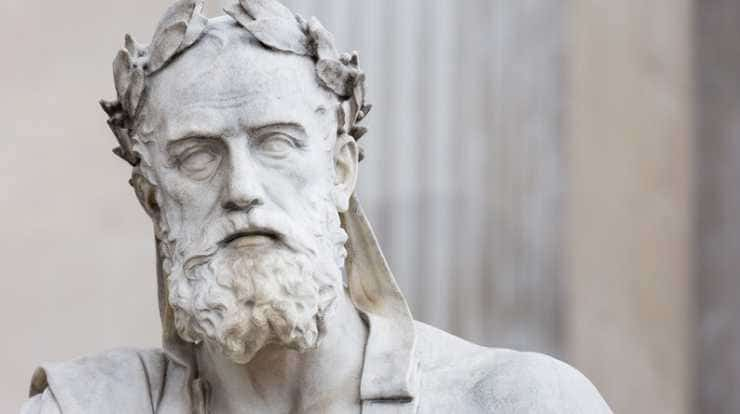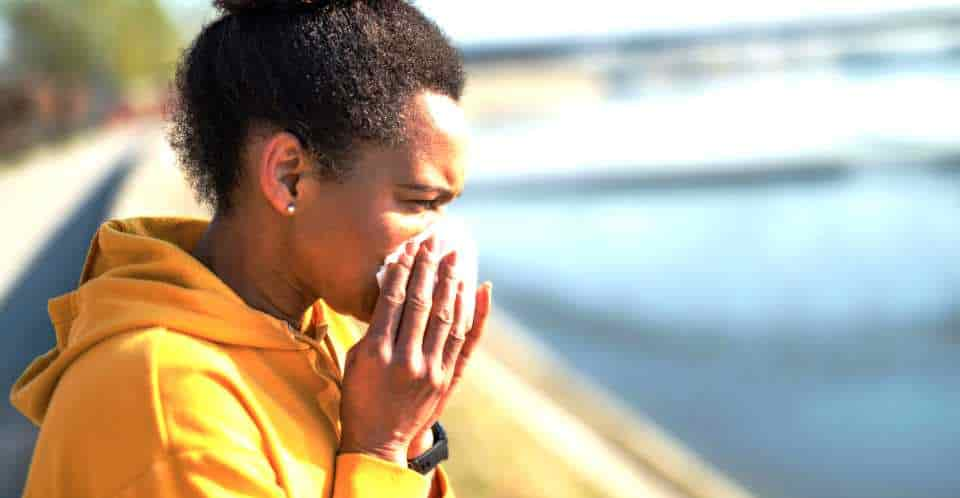Is it possible to sneeze without closing your eyes?
It is absolutely possible. But most people tend to automatically close their eyes when sneezing, according to David Huston, associate dean of the Texas A&M College of Medicine Houston campus and an allergist at Houston Methodist Hospital.
Closing the eyes is an autonomic reflex, an unconscious motor action in response to a stimulus: in this case, sneezing.
The fact that it is possible to sneeze with the eyes open suggests that it is not hard-wired or mandatory, according to Huston. There is no definitive data as to why sneezing elicits a blinking response, but Huston and others speculate that it is reflective of a protective mechanism.
“The body works to rid its airways by sneezing when it detects irritating particles in the nose. By automatically shutting the eyelids when a sneeze occurs, more irritants can potentially be prevented from entering and aggravating the eyes,”
Huston says.
Popping Eyeballs?
You might recall the age-old myth that warned against sneezing with open eyes to mitigate the possibility of eyeballs popping out. Tales swirled for decades, speculating that subluxation, or dislocation of the eyeball, could occur if people sneezed with their eyes open.
Many point to a story published on April 30, 1882, in the New York Times that reports an incident of a woman whose eyeball became unhinged from aggressively sneezing.
The article told of a woman who “met with a singular accident day before yesterday. While riding on a street car, she was seized with a sudden fit of sneezing and burst one of her eyeballs, from which she has since been suffering the most intense pain.”
However, the rumours that open-eye sneezes dislocate eyeballs were based on conjuncture. Huston dubbed such stories as “far-fetched tales.”
“There is little to no evidence to substantiate such claims. Pressure released from a sneeze is extremely unlikely to cause an eyeball to pop out even if your eyes are open,”
he says.
Sneezing Reflex
Sneezing typically occurs when foreign particles or sufficient external stimulants pass through the nasal hairs to reach the nasal mucosa. This triggers the release of histamines, which irritate the nerve cells in the nose, resulting in signals being sent to the brain to initiate the sneeze through the trigeminal nerve network.
The brain then relates this initial signal, activates the pharyngeal and tracheal muscles and creates a large opening of the nasal and oral cavities, resulting in a powerful release of air and bioparticles. The powerful nature of a sneeze is attributed to its involvement of numerous organs of the upper body – it is a reflexive response involving the face, throat, and chest muscles.
Sneezing is also triggered by sinus nerve stimulation caused by nasal congestion and allergies.
Sneezing Hemorrhage
Increased pressure from straining builds up in the blood vessels, not the eyes or muscles surrounding the eyes. This vascular pressure can result in ruptured capillaries, which are the body’s smallest blood vessels, which often manifest in the eyeballs or the face.
“For example, during childbirth, excessive straining can cause some veins to hemorrhage, leaving a mother’s eyes or face to appear red or markedly bruised,” Huston says, “but it is irresponsible to claim that such pressure could dislodge the eye from its socket.”
With cold and flu season in full force, there are several methods to protect others from the germs spewed when sneezing.
“Although you can focus to keep your eyes open when sneezing, your body’s blinking response is likely there to protect itself from germs,”
Huston says.
Other Myths And Superstitions

In Ancient Greece, sneezes were believed to be prophetic signs from the gods. In 401 BC, for instance, the Athenian general Xenophon gave a speech exhorting his fellow soldiers to fight against the Persians. A soldier underscored his conclusion with a sneeze. Thinking that this sneeze was a favourable sign from the gods, the soldiers were impressed.
Another divine moment of sneezing for the Greeks occurs in the story of Odysseus. His waiting wife Penelope, hearing Odysseus may be alive, says that he and his son would take revenge on the suitors if he were to return. At that moment, their son sneezes loudly and Penelope laughs with joy, reassured that it is a sign from the gods (Odyssey 17: 541-550).
It may be because this belief survived through the centuries, that in certain parts of Greece today, when someone is asserting something and the listener sneezes promptly at the end of the assertion, the former responds “bless you and I am speaking the truth”, or “bless you and here is the truth”. A similar practice is also followed in India.
In certain parts of Eastern Asia, particularly in Chinese culture, Korean culture, Japanese culture and Vietnamese culture, a sneeze without an obvious cause was generally perceived as a sign that someone was talking about the sneezer at that very moment. This can be seen in the Book of Songs (a collection of Chinese poems) in ancient China as early as 1000 BC, and this belief is still depicted in present-day manga and anime.
In China, Vietnam, South Korea, and Japan, for instance, there is a superstition that if talking behind someone’s back causes the person being talked about to sneeze; as such, the sneezer can tell if something good is being said (one sneeze), something bad is being said (two sneezes in a row), even if someone is in love with them (three sneezes in a row) or if this is a sign that they are about to catch a cold (multiple sneezes).
Parallel beliefs are known to exist around the world, particularly in contemporary Greek, Slavic, Celtic, English, French, and Indian cultures. Similarly, in Nepal, sneezers are believed to be remembered by someone at that particular moment.
In Indian culture, especially in northern parts of India and Iran, it has been a common superstition that a sneeze taking place before any work was a sign of impending bad interruption. It was thus customary to pause to drink water or break any work rhythm before resuming the job at hand to prevent any misfortune from occurring.
Last Updated on January 30, 2023
